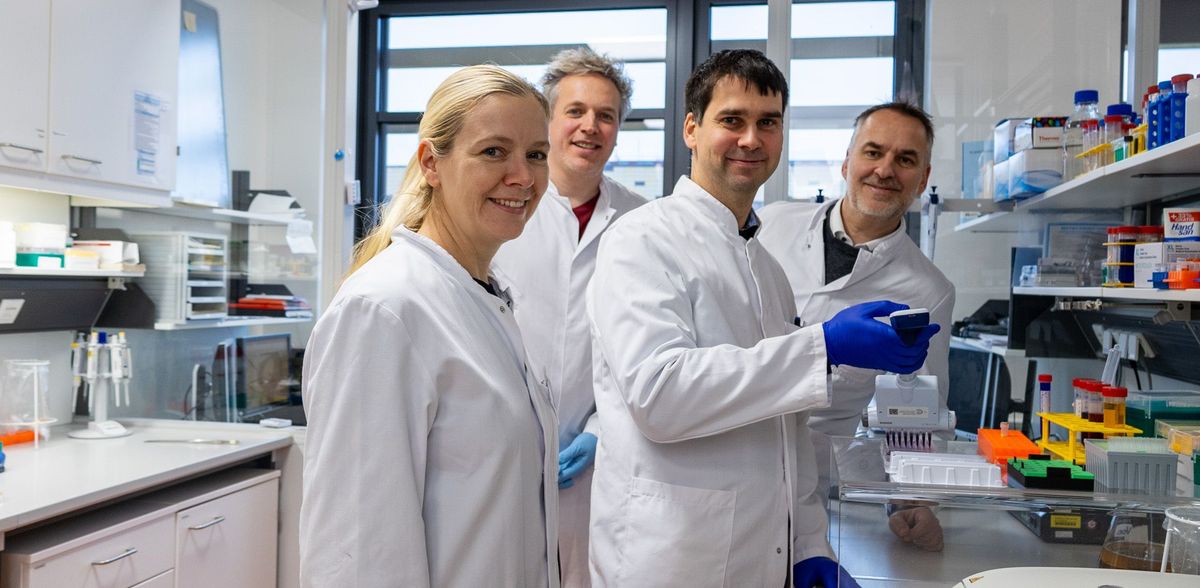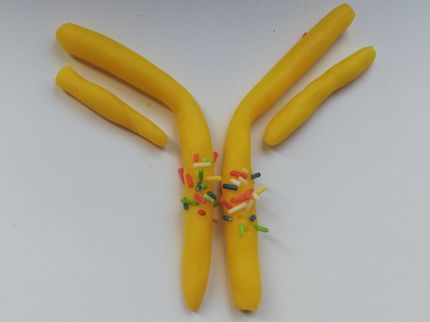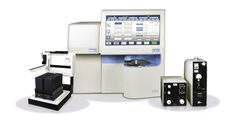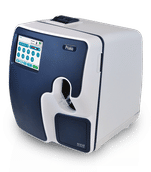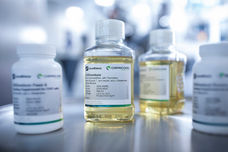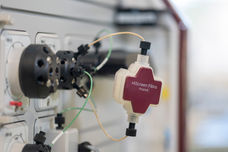Avoiding animal testing with vegan antibodies
Spin-off project "Ymolution" launched
Advertisement
A project started at the University Medical Center Greifswald in November that will lead to the founding of a company in just a few months. A research team from the Interfaculty Institute of Genetics and Functional Genome Research has developed a new method for producing nanoantibodies that completely dispenses with animal testing.
These "vegan" antibodies can play an important role in many areas of research - for example in diagnostics and cancer research, which until now have been almost exclusively dependent on animal systems. "Ymolution" is the name of the spin-off from the research transfer project planned for 2025. It is intended to represent a revolutionary solution to immunological issues.
Antibodies recognize pathogens according to the lock-and-key principle and render them harmless. They therefore play an important role in medicine: in basic research, in diagnostics, for example in the rapid coronavirus test, or in the development of drugs. "But animals are normally used to produce antibodies," say Dr. Christian Hentschker and Dr. Alexander Reder from the "Ymolution" project. One way is to use animal gene libraries. The other way is to obtain certain antibodies from laboratory animals, especially mice and rabbits. "This is not only ethically problematic, but is also very time-consuming and costly," Reder continues. In addition, the quality of the antibodies produced is often poor and there is never a guarantee of success anyway. This is because every animal reacts differently. Almost 90 percent of the antibodies produced cannot be used effectively.
The Greifswald research team now has a solution to all these problems: the artificial production of nanoantibodies in the bacterial system. With the help of their novel method, the immune system of the animals is simulated in the bacterial cells. In this way, all relevant antibody specificities can theoretically be reproduced in completely synthetically produced gene libraries. "You can think of it as an unlimited collection of blueprints for different antibodies," Hentschker compares the principle.
"We can select exactly which antibodies we want to produce from this library," he explains, "and we can filter out in advance everything that would not work or would only work poorly." In addition, Reder emphasizes that the new process offers the particular advantage of generating a large number of antibody specificities that were previously unattainable and that cannot be realized in animal models. In addition, the entire process takes place in the laboratory - controlled and under the highest purity conditions. This enables better quality with increased efficiency in antibody production. "We will produce antibodies significantly faster with this method, which will also significantly reduce production costs," continues Reder.
"Ymolution has the potential to revolutionize antibody production in the long term through the use of innovative synthetic libraries and functional selection," says a satisfied Prof. Karlhans Endlich. After all, these antibodies have a direct impact on patient care - for example in cancer therapy, in the fight against viral infections or in the treatment of certain kidney diseases. The Scientific Director of the University Medical Center Greifswald emphasizes: "These technologies are a prime example of the transfer of research results from the UMG to the regional economy."
The project, which is being funded with around 850,000 euros through the "EXIST Transfer of Research" program of the Federal Ministry of Economics and Climate Protection, is still in its infancy. Preparations for the company are in full swing. The spin-off is planned for fall 2025. "Ymolution" is another project at the University Medical Center Greifswald that has successfully acquired funding from the EXIST research transfer initiative," says Jan Meiering, business management contact for the "Ymolution" team. He emphasizes how much potential the project holds: "It is intended to lay the foundation for a regionally based company that will create highly qualified jobs in the long term." This could strengthen the region economically and serve as a model for other start-ups.
Note: This article has been translated using a computer system without human intervention. LUMITOS offers these automatic translations to present a wider range of current news. Since this article has been translated with automatic translation, it is possible that it contains errors in vocabulary, syntax or grammar. The original article in German can be found here.
Other news from the department science
These products might interest you
Most read news
More news from our other portals
Something is happening in the life science industry ...
This is what true pioneering spirit looks like: Plenty of innovative start-ups are bringing fresh ideas, lifeblood and entrepreneurial spirit to change tomorrow's world for the better. Immerse yourself in the world of these young companies and take the opportunity to get in touch with the founders.
See the theme worlds for related content
Topic world Antibodies
Antibodies are specialized molecules of our immune system that can specifically recognize and neutralize pathogens or foreign substances. Antibody research in biotech and pharma has recognized this natural defense potential and is working intensively to make it therapeutically useful. From monoclonal antibodies used against cancer or autoimmune diseases to antibody-drug conjugates that specifically transport drugs to disease cells - the possibilities are enormous

Topic world Antibodies
Antibodies are specialized molecules of our immune system that can specifically recognize and neutralize pathogens or foreign substances. Antibody research in biotech and pharma has recognized this natural defense potential and is working intensively to make it therapeutically useful. From monoclonal antibodies used against cancer or autoimmune diseases to antibody-drug conjugates that specifically transport drugs to disease cells - the possibilities are enormous
